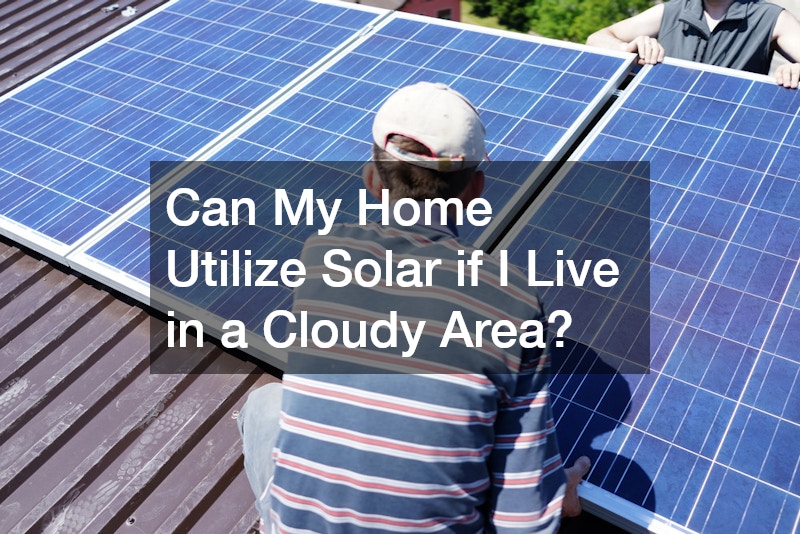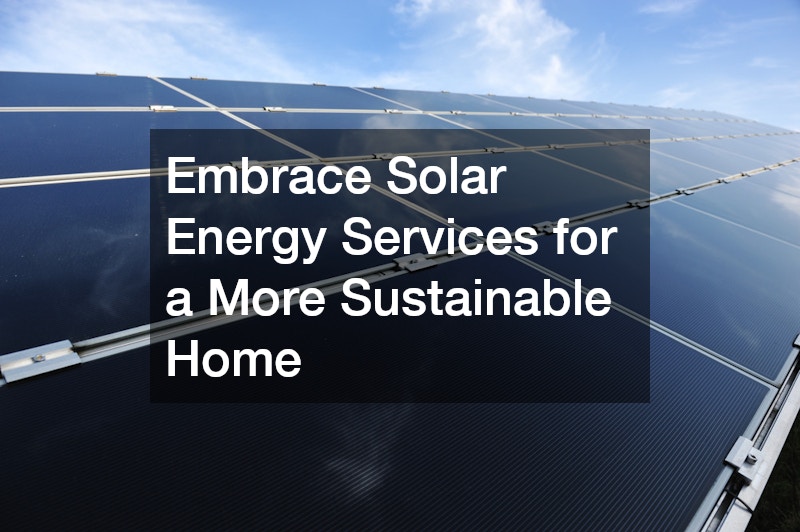Solar energy has emerged as a beacon of hope for sustainable living in the face of rising environmental concerns and the quest for energy efficiency. By integrating solar energy services into your home, you not only reduce your carbon footprint but contribute to a cleaner, greener future. Solar power systems are designed to operate with minimal maintenance, ensuring long-term benefits and reliable energy production. Embracing solar energy for your home involves a thorough understanding of both its immediate and long-term impacts on economic and environmental sustainability.
Are Solar Panels a Good Investment for My Home?
The financial benefits of installing solar panels are substantial. Solar panels offer homeowners significant cost savings on energy bills. In addition to lowering monthly energy expenses, solar panels can shield homeowners from fluctuating energy prices. Homeowners often find that solar panel installation increases the overall value of their property. As an investment, solar panels provide a direct path towards energy independence and financial savings over time.
Solar panels typically pay for themselves within five to ten years, depending on a range of factors, including local energy costs and available incentives. These systems also increase energy resilience, giving homeowners more control over their energy usage. Long-term savings materialize as reduced utility bills, leaving more disposable income for other expenses. For those considering the financial commitment of solar panels, the prospect of breaking even and profiting makes it a compelling option.
How Do I Choose the Right Solar Energy Service Provider?
Choosing the right solar energy service provider involves evaluating their expertise, experience, and customer satisfaction levels. It’s important to evaluate the provider’s reputation in the industry and their ability to handle projects of varying sizes and complexities. Factors such as pricing, available technology, and post-installation support are crucial in selecting a credible provider. The right provider facilitates smooth installation and offers ongoing maintenance to ensure efficiency and longevity, helping homeowners maximize their solar investment.
Researching a company’s credentials involves examining their licenses, certifications, and industry affiliations. These qualifications ensure that the provider adheres to industry standards and local regulations. Customer reviews provide insight into past project successes and client satisfaction, helping prospective customers make informed decisions. A track record of successful installations is a testament to the provider’s capability and reliability in ensuring optimal solar system performance, fostering confidence in their ability to deliver quality results.
What are the Long-term Benefits of Solar Energy for Homeowners?
Long-term benefits include not only the financial savings accumulated over the years but also the enhancement of home energy independence. With solar panels, homeowners can generate their own power, reducing reliance on external energy providers and insulating themselves from rising energy costs. By reducing dependence on fossil fuels, homeowners contribute to a significant reduction in carbon emissions. Solar energy adoption is a step towards a resilient and sustainable energy future, fostering greater environmental responsibility for years to come.
Solar panels significantly reduce monthly energy bills, providing a stable and predictable energy cost structure. The ability to generate energy from sunlight ensures homeowners can rely on a renewable and cost-effective source, regardless of market fluctuations. On an environmental front, less reliance on traditional energy sources results in fewer greenhouse gas emissions, helping to combat climate change. Future generations benefit from the sustainable practices we adopt today, highlighting the dual advantage of economic savings and environmental stewardship in creating a more sustainable world.
Can My Home Utilize Solar if I Live in a Cloudy Area?

A common misconception is that solar panels are ineffective in areas with limited sunshine. Advances in solar technology have made it possible to efficiently capture and convert solar energy, even in less sunny climates. Modern solar panels are designed to work in various weather conditions, from overcast skies to shorter daylight hours. Homeowners can still benefit significantly from solar installations by optimizing system placement and technology, ensuring efficient energy production even in challenging conditions.
To maximize solar efficiency in cloudy climates, consider installing high-efficiency solar panels that capture scattered light. These panels are designed with advanced materials and technology that improve their energy conversion rates, even in low-light conditions. Innovations such as solar tracking systems and battery storage solutions enhance energy capture and retention, making it possible to store excess energy for use during cloudy periods or at night. These strategies ensure that homes in less sunny environments can achieve substantial energy efficiency and savings, making solar a viable option regardless of the local climate.
Adopting solar energy services can transform any home into a sustainable powerhouse, aligning financial savings with renewable energy goals. By reducing reliance on traditional energy sources, homeowners not only lower their carbon footprint but also increase their energy independence. Integrating solar energy into daily life illustrates a commitment to both present and future ecological well-being. The future is bright with solar, and it begins by taking informed steps toward integrating this clean technology into our everyday lives, helping pave the way for a greener, more sustainable future.

